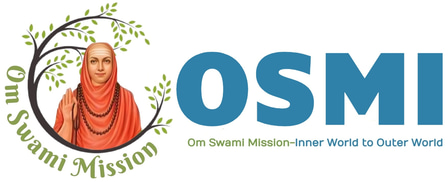Liberation
The Self already exists within us and not knowing this, is spiritual ignorance. There are other factors that contribute to bondage, like ego. Liberation can be attained only if one enters egoless state. What happens if Liberation is not attained? He transmigrates till such time he is liberated. Which is the important factor in not realising the Self. Primarily it is the ignorance and secondly due to the attachment to the material world, that one accrues karma. Why karmas are being accrued? Mainly because of ego, thinking that “I am the doer”. If one thinks that he is the doer, then he is bound by body and mind and as a result he cannot enter the egoless state.


The Self is inherently present within us, and failing to recognize this is a form of spiritual ignorance. Other elements, such as the ego, also play a role in our bondage. True liberation can only be achieved by reaching a state free from ego. If liberation is not achieved, one continues to reincarnate until they attain it. Ignorance is the primary reason for not realizing the Self, followed by attachment to the material world, which leads to the accumulation of karma. This karma is primarily accrued due to the ego, which fosters the belief that "I am the doer." When one identifies as the doer, they become trapped in the limitations of body and mind, preventing them from entering an egoless state. The idea of surrender is crucial for achieving liberation. Krishna emphasizes the importance of surrender in his teachings (VIII. 65 and 66), urging, “Focus your mind on me, be devoted, bow to me, and through this devotion, you will become one with me. I assure you… Surrender all your duties to me and seek refuge in me alone. I will free you from all sins.” In the later chapters of the Gita, Krishna expresses deep compassion. He tells Arjuna, and through him all of humanity, “You have endured enough suffering. I do not wish for you to suffer any longer. I am your Lord. Surrender to me by keeping your thoughts on me. I will grant you liberation. You are very close to me; just a few more steps and you will reach me. Please do not turn back.” However, if someone still refuses to surrender their ego after such compassionate guidance, then no one can rescue them. They will continue to experience the cycle of birth and death endlessly.
When someone finds themselves in a deep pit, a rope can be thrown to help them escape. If that person refuses to take the rope and climb out, what can we conclude about their mindset? This reflects the current state of humanity. The Lord offers a lifeline, assuring that He will guide you to safety. Yet, if the person remains inactive, it suggests a resignation to their circumstances. The Lord encourages individuals to set aside their pride and surrender their thoughts to Him. He wishes for no one to endure physical suffering; simply cultivating a mindset of renunciation is sufficient for achieving Liberation. The essence of the Gita lies in sacrifice. One can engage in any action without attachment to its outcomes. There are no restrictions, as long as one maintains a conscious connection with the Lord at all times. By seeking refuge in Him, the Lord will ensure your Liberation, finding ways to cleanse your sins, purify your spirit, and ultimately unite you with Himself. After all, the Lord embodies compassion and love. Kṛṣṇa reassures Arjuna not to be anxious and invites him to fully surrender to Him. The Lord promises that all his sins will be forgiven and he will attain liberation. He advises, “Do not become entangled in duties that may be right or wrong. I transcend all scriptural rules. When your goal is to reach Me, the principles of dharma lose their importance. Let go of your ego and come to Me; that is all I ask of you.”
When one surrenders mentally, all sins are consumed like a pile of cotton ignited by a single spark. In this analogy, the spark represents the enlightening knowledge of the Self. So, what does it mean to know the Self? This topic has been explored in the previous three articles. When a person acknowledges and truly understands that they are the Self, the accumulation of sins comes to a halt. They come to recognize the ever-radiant Self within, which has been obscured by the influences of māyā. Actions taken by such an individual do not generate karma, freeing them from its effects. The Self that was once hidden is now revealed as the three major obstacles—ego, māyā, and karma—are eliminated. This person no longer experiences dualities like joy and sorrow or fear and bravery. Why is that? How can the Self be subject to dualities or triads? It's important to note that Liberation does not imply traveling to a specific location, such as heaven, or another realm, like the sun or moon. “Liberation is the unveiling of the inherent Śakti (Power) within the Self, where the chains of ignorance have been dissolved.” What happens to the physical body of someone who is liberated? They continue to live in their physical form until their death. Beyond rituals and the repetition of mantras (here, japa refers to the mundane recitation of a mantra using a rosary, not aligning it with breath), it is crucial to seek the Self within, who is always present and radiating light. The more we inquire about the Self, the closer we get to that inner illumination, breaking through all barriers of bondage and limitation. Once we realize the Self in its true brilliance, we cease to accumulate karma.
